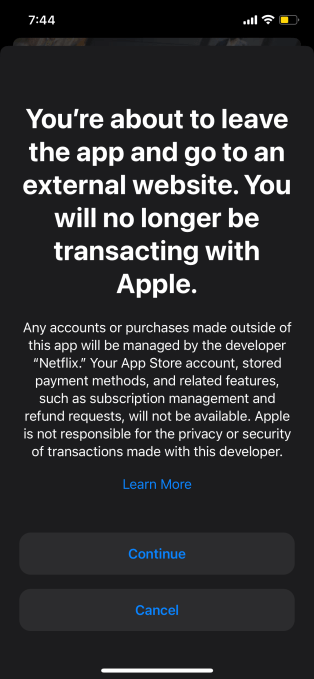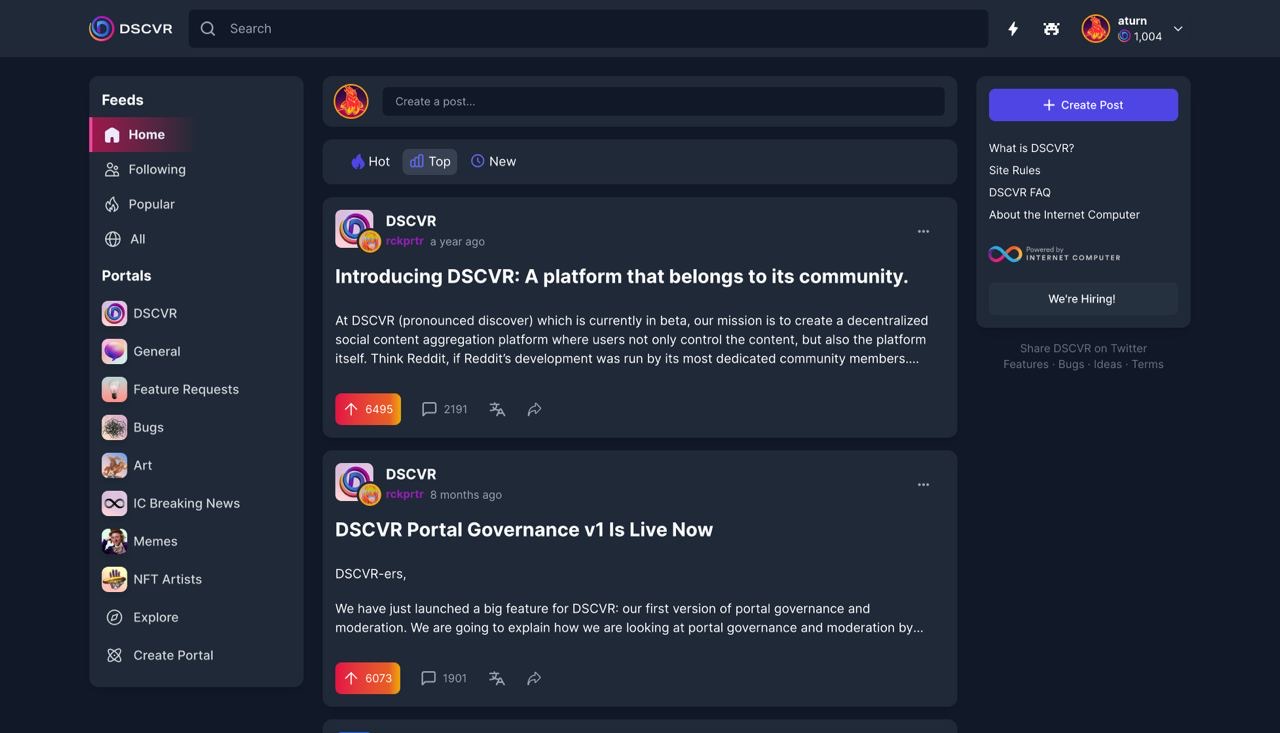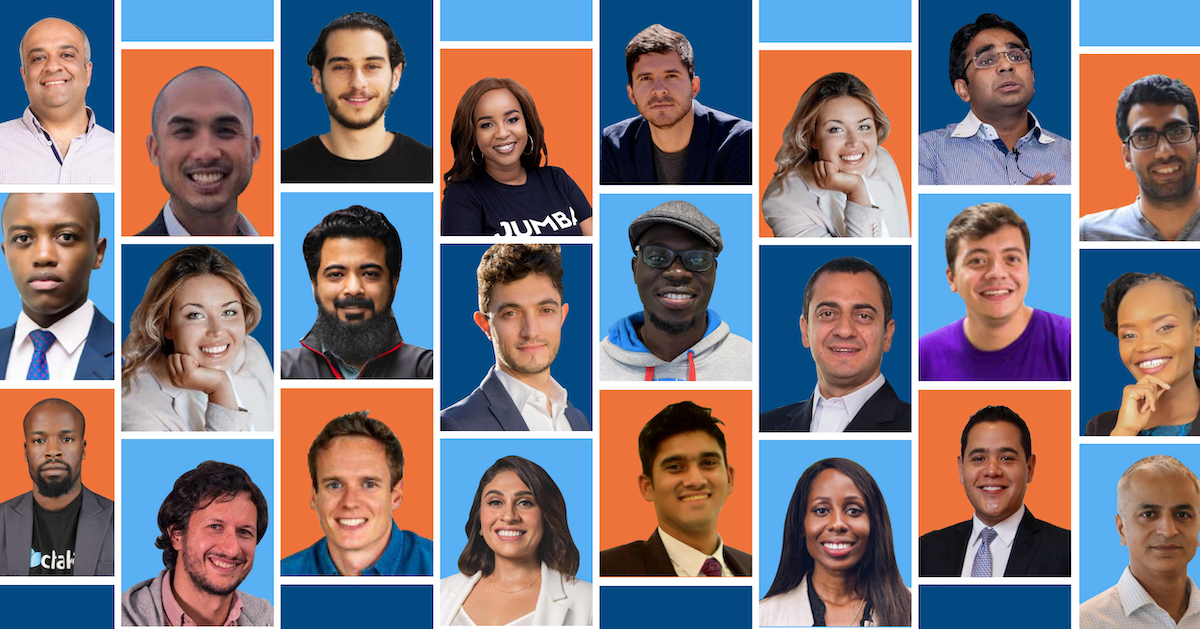Category: TECHNOLOGY
Instacart expands its EBT SNAP payments program to 10 more states
Instacart announced today that Electronic Benefits Transfer and Supplemental Nutrition Assistance Program (EBT SNAP) can now be used to buy groceries online in 10 additional states through its app. The 10 states are Colorado, Hawaii, Idaho, Louisiana, Montana, New Mexico, Oregon, Utah, Washington and Wyoming.
Instacart says Albertsons Companies and Sprouts Farmers Market are among the first to accept EBT SNAP online in these states. With this expansion, grocers of all sizes can use Carrot Payments, an Instacart Platform solution, to accept EBT SNAP payments online across 49 states and Washington D.C.
Image Credits: Instacart
“At Instacart, our goal is to continue unlocking access to nutritious food for those who need it most,” said Sarah Mastrorocco, the Vice President of Access to Food & Nutrition at Instacart, in a statement. “We’ve long advocated to expand online EBT SNAP acceptance, and we’re proud to bring this critical service to people in 10 additional states in partnership with grocers that people know, love and trust. Our partners offer a broad selection of fresh food and pantry staples, and with this expansion, we’re giving more families access to nourishment, paired with the convenience of same-day delivery and pickup.”
The company launched EBT SNAP payments in November 2020 and has since expanded the program to include over 40 retailers. With these expansions, Instacart says it now powers EBT SNAP payments for more than 60 retail banners spanning more than 8,000 stores. Instacart offers EBT SNAP acceptance through the Instacart Platform, a suite of enterprise-grade solutions that help enhance and digitize retail experiences. EBT SNAP participants can shop for pickup or delivery via the Instacart App and grocers’ Instacart Platform-powered websites and apps.
https://techcrunch.com/2022/07/25/instacart-expands-ebt-snap-payments-program-10-states/
GM is launching an online EV service to educate and woo consumers
General Motors launched a program Monday to educate car shoppers on electric vehicles and target first-time buyers as the automaker searches for ways to catch up to and outpace rival Tesla.
The automakers hopes EV Live, a digital platform that connects shoppers with EV specialists, will speed EV adoption and create a larger market for its new battery-electric models, including the just-launched Chevrolet Blazer SS. Available seven days a week, EV Live provides real-time answers on EV-related questions such as how to use a public charging network or install a home charging station.
Addressing “common misconceptions about EVs will accelerate widespread EV adoption,” said Hoss Hassani, GM vice president of EV Ecosystem.
Users can learn more about EV technology, sustainability and mobile apps through one-on-one live video tours, where the specialist can hear but not see the user. GM said it plans to add group tours and pre-recorded sessions later this year.
U.S. sales of new EVs rose 13%, to 196,788 units, between April and June 2022, compared with the first three months of the year, according to Cox Automotive. However, a lack of education around battery-electric cars, trucks and SUVs remains a barrier to adoption, according to a Consumer Reports survey released this month. American drivers surveyed reported confusion over how EVs work, charge their batteries and unlock tax incentives.
“EV Live lets us meet people where they are and have a real conversation about electrification,” Hassani said. “We’re selling the EV experience, rather than specific EVs.”
EV Live is among a range of initiatives the automaker announced this summer to supplement its $750 million investment in charging infrastructure. In July, GM said it plans to partner with Pilot Flying J to build out a national DC fast-charging network for EVs.
The automaker said in June it will equip its battery-electric models with “Plug and Charge” capability to help standardize public charging. Charging logistics is the top barrier to purchasing or leasing an EV, with 61% of drivers surveyed reported concern, according to Consumer Reports.
https://techcrunch.com/2022/07/25/gm-launches-ev-live-to-educate-car-shoppers/
Real driverless cars are now legal in China’s tech hub Shenzhen
There are plenty of autonomous driving vehicles testing on the roads of Shenzhen today: Pony.ai, Baidu, DeepRoute, AutoX, you name it. But these vehicles are not really the unmanned vehicles tech upstarts envision for the future, as they have been required to operate with a safety driver behind the wheel.
A set of provisions introduced by the Shenzhen government is bringing the industry one step closer to a driverless future. The “Silicon Valley of China” that’s home to the likes of Huawei, Tencent, and DJI is historically known for its progressive economic policies, so it’s unsurprising that the city just became the first in China to have laid out comprehensive rules governing smart and connected vehicles.
The regulation, which is set to take effect on August 1, grants permission for autonomous driving vehicles to operate without a human in the driver’s seat — though only within areas designated by the city’s authorities.
The rules also define the thorny issue of liability. When the vehicle is equipped with a driver, the driver will “be handled” by the transportation authorities in case of traffic rule violations and incidents. But if the car is completely driverless, the owner or manager of the self-driving vehicle is subject to handling by the authorities. If the accident is a result of a defect in the connected car, the owner or manager of the car can seek compensation from the manufacturer or vendor.
Driverless robotaxis have been allowed to operate in Beijing, the capital city where events often serve as the bellwether for the rest of the country, but the permission comes in the form of case-by-case “permits” rather than being officialized in regulations as is the case with Shenzhen.
Major autonomous driving players in China have all opted for a lidar-based route instead of one that relies purely on vision tech like Tesla. Meanwhile, passenger car manufacturers are in a race to equip their latest models with advanced driving assistance tech, which is also powered by lidar. Robo vans designed to ferry things inside industrial facilities are similarly equipped with lidar.
Demand from these various fields has been a boon to domestic lidar makers like Hesai, Robosense, Livox, Innovusion as well as foreign ones such as Ouster. Luminar, the Florida-based lidar company, recently snagged a strategic investment from Ecarx, a smart car platform started by China’s auto mogul Li Shufu, the founder of Geely, which is expected to help it secure more business in China and beyond.
https://techcrunch.com/2022/07/25/real-driverless-cars-legal-in-chinas-shenzhen/
The race to build a social media platform on the blockchain
“People need distribution for their NFTs. They want to achieve liquidity for their NFTs, and they need real people, not bots, to own these NFTs and to potentially hold on to them ourselves. So we become a distribution channel for NFTs so that [people seeking distribution] have a 10,000 entity collection and they might drop 1,000 to our top users,” Porter said.
DSCVR has onboarded over 100,000 users, according to Porter, and has generated “millions of dollars” in NFT rewards for those users through the airdrop reward mechanism. What sets it apart from other DeSo platforms, Porter said, is in its goal to build a bridge between web2 and web3.
“How do we take a typical web2 user who may not be comfortable with web3, and introduce them to web3 technology and give them that absolutely authentic and truly native experience within web3 without making major sacrifices to bridge that gap? That’s one of the differences that we’re looking at, is we are trying to increase the amount of perspective or increase the amount of fidelity that may be given out of a web3 experience,” Porter said.
To that end, Porter noted, linking an external wallet through MetaMask or another provider to a social profile can be complicated, particularly for those less familiar with web3 technology. DSCVR’s answer lies in its native wallet, which Porter says is available to users on the platform and does not require them to hand over control of their own keys.
The question DSCVR is trying to answer, he added, is how to give users a web3 native, decentralized experience with “little to no sacrifice.” It’s interesting that the company chose to build on the Internet Computer protocol rather than Ethereum, the most popular smart-contract chain. Porter said he made that decision after meeting Dfinity’s president and chief scientist, Dominic Williams, while Porter was working on a blockchain-based smart contract project as a consultant at BCG.
After becoming involved with Dfinity as the protocol itself was being developed, Porter decided after a few years to leave his role at BCG and begin working full-time with Dfinity. His first project was to build a message board on the protocol, which he said exposed him to the need for web3 communities and inspired his decision to build a social network.
The Internet Computer ecosystem has seen its own controversies, too. Dfinity
It’s easy to be skeptical of the big social media giants — they typically sell user data to advertisers and have been mired in controversy for their approach to content moderation. Web3 proponents think they can build a new system altogether that sidesteps the concentrated power of platforms — a decentralized social media (DeSo) ecosytem where users ideally have more ownership over the content they create.
DSCVR, a blockchain-based social network built on Dfinity’s Internet Computer protocol, has entered the race to build a scalable DeSo platform with $9 million in seed funding led by Polychain Capital. Other participants in the round include Upfront Ventures, Tomahawk VC, Fyrfly Venture Partners, Shima Capital and Bertelsmann Digital Media Investments (BDMI), according to the company.
It’s a competitive space with plenty of startups and large companies racing to build a network that provides utility for its users. Earlier this month, ex-Coinbase employee Dan Romero secured $30 million led by a16z to develop Farcaster, a DeSo protocol that allows users to move their social identity across different apps. TechCrunch covered another seed-stage startup, Primitives, that raised a $4 million round in May for its own Solana-based DeSo network. And Big Tech is in the game, too — Twitter funds an offshoot of its service called BlueSky, an open-source DeSo project founded in 2019 that hasn’t gone live but is experimenting publicly with its development process.
DSCVR, for its part, hosts token-gated communities called “portals,” where users have to own a certain NFT to be able to participate. The communities help NFT projects build hype by airdropping digital assets to DSCVR users, cofounder and CEO Rick Porter told TechCrunch in an interview.
An image of the home feed on DSCVR Image Credits: DSCVR
“People need distribution for their NFTs. They want to achieve liquidity for their NFTs, and they need real people, not bots, to own these NFTs and to potentially hold on to them ourselves. So we become a distribution channel for NFTs so that [people seeking distribution] have a 10,000 entity collection and they might drop 1,000 to our top users,” Porter said.
DSCVR has onboarded over 100,000 users, according to Porter, and has generated “millions of dollars” in NFT rewards for those users through the airdrop reward mechanism. What sets it apart from other DeSo platforms, Porter said, is in its goal to build a bridge between web2 and web3.
“How do we take a typical web2 user who may not be comfortable with web3, and introduce them to web3 technology and give them that absolutely authentic and truly native experience within web3 without making major sacrifices to bridge that gap? That’s one of the differences that we’re looking at, is we are trying to increase the amount of perspective or increase the amount of fidelity that may be given out of a web3 experience,” Porter said.
To that end, Porter noted, linking an external wallet through MetaMask or another provider to a social …read more
https://techcrunch.com/2022/07/25/the-race-to-build-a-social-media-platform-on-the-blockchain/
Netflix’s iOS app now has a sign up button that takes you to its website
Netflix’s app on iOS now has a signup button that will redirect you to its site so you can subscribe to one of its plans with the company paying no App Store fees. This change comes after Apple said in March that “reader” apps — ones that provide digital content like books and videos — can offer an external link to their website for account creation.
The new sign-up screen, as spotted by 9to5Mac first, shows a button that will take you to netflix.com/join. But before you’re redirected to the site, the app shows a warning screen that lets you know that you’re not transacting using Apple’s system anymore and all the processes related to that are managed by Netflix.
Image Credits: Netflix
“Any account or purchases made outside of this app will be managed by the developer “Netflix.” Your App Store account, stored payment methods, and related features, such as subscription management and refund requests, will not be available. Apple is not responsible for the privacy or security of transactions made with this developer,” the warning modal says.

Image Credits: Netflix
Notably, Apple has asked developers in South Korea and Netherlands (only dating apps) to use similar modals for using alternative payment systems for in-app purchases.
It’s not clear if the new sign-up button is rolling out for users across the world. We have asked Netflix for more details, and we’ll update the story if we hear back.
Apple takes 30% fees (or 15% for small developers) from apps on selling subscriptions through the App Store’s payment system. While Netflix historically allowed you to sign up for the service on your iPhone, it ditched the iTunes billing in 2018 to avoid paying the commission. Instead, Netflix’s iOS app just provided a sign-in option with no in-app process or link to its website for creating your account. The streaming giant will hope that the new sign-up button on iOS will bring more new users to the platform.
In comparison, on Android, Netflix allows you to create an account by providing your email ID, and later sends you an email with information to purchase a plan to start using the app and watch content.
Epic Games’ CEO Tim Sweeny commented on this new development by complaining that games aren’t still allowed to do this. That’s not surprising given the company’s core argument in the lawsuit against Apple was App Store not permitting developers to use third-party payment methods for in-app purchases.
Now Netflix is sending iOS users to payment methods outside Apple’s 30% App Tax. Games aren’t allowed to do this. Can Roblox do it? Is that what the bizarre court exchange about Roblox graduating from “game” to “experience” was ultimately about?https://t.co/CpT09mRkXO
— Tim Sweeney (@TimSweeneyEpic) July 25, 2022
A report from Sensor …read more
The Station: Executive upheaval at VW Group and the tale of two Tesla earnings
The Station is a weekly newsletter dedicated to all things transportation. Sign up here — just click The Station — to receive it every weekend in your inbox.
Welcome back to The Station, your central hub for all past, present and future means of moving people and packages from Point A to Point B.
Last week I noted that July is the summer of the EV truck (for me). When I zoom out though, it’s looking a lot more like the summer of the course correction. Put another way, lots of companies from automakers and tech giants to suppliers and startups are restructuring, shuffling executives and laying off staff. And not just in the U.S.; this is happening in Europe as well.
Just look at Volkswagen Group. VW Group CEO Herbert Diess is leaving — and rather suddenly. The embattled CEO has been on the ropes, so to speak, for awhile now. I did expect this day to come, but not now and not in this manner.
The company announced his departure Friday just hours after Diess published a pep talk-like LinkedIn post. Porsche boss Oliver Blume is taking his spot, which leaves me with many questions, including how this might affect Porsche’s plans for an IPO. Blume is apparently staying in the top spot at Porsche and running all of VW Group. Other executive shuffling includes Volkswagen of America CEO Scott Keogh leaving to head up VW’s new spinoff EV brand Scout.
In some other cases, entire companies are shutting down. Perceptive Automata was one of those to suddenly close. Autonocast, the podcast I co-host with Ed Niedermeyer and Alex Roy, recently sat down with Sam Anthony about the startup’s collapse, what he learned and his thoughts about the AV industry. It’s rare that a founder will speak so candidly and so soon after a collapse like this. Take a listen.
And with that, let’s dive in.
As always, you can email me at kirsten.korosec@techcrunch.com to share thoughts, criticisms, opinions, or tips. You also can send a direct message to @kirstenkorosec
Micromobbin’
Welcome to the world of tiny electric vehicles. Let’s jump right in with this past week’s news.
Cargo e-bike sales have doubled in the UK between January and May as gas prices soar.
GetHenry, a maker of bikes and trikes, shall henceforth be known as Cycle, Haje Kamps reports, as he scratches his head at the un-originality of the new name choice.
Hawaii residents can now get an e-bike rebate of $500, capped at 20% of the purchase price.
Ola Electric is investing $500 million to set up a battery innovation center in India following a string of moped fires.
Mercedes-EQ Formula E team have created a collection of sleek-looking, high-performance, luxury e-bikes. The minimalistic design includes a concealed battery and motor, a digital dashboard, phone charging functionality and more. Currently taking preorders.
Swytch is showing off its not-quite-pocket-sized-but-still-really-small batteries that are a part of the company’s DIY e-bike conversion kit.
Tier is …read more
Egyptian B2B e-commerce platform Cartona raises $12M to scale and explore new verticals
There are over 400,000 shops and thousands of international and local brands across Egypt, with the sector growing annually by 8%.
Startups that solve the supply-chain and operational challenges of players in the fast-moving consumer goods (FMCG) industry–by helping buyers access products from sellers on a single platform–keep attracting venture capital from investors.
Cartona, one of the major players digitizing the traditional trade market, including mom-and-pop stores, FMCG producers, wholesalers, and distributors in Egypt, has raised $12 million in Series A funding. Jordan and U.S.-based early-stage venture capital firm Silicon Badia led the round, which also welcomed participation from the SANAD Fund for MSME, an impact investment fund for the Middle East and North Africa, Arab Bank Accelerator and Sunny Side Ventures.
Investors such as Global Ventures and Kepple Ventures doubled down less than a year after participating in the company’s $4.5 million pre-Series A funding last September. At the time, Cartona was present in three Egyptian cities; it’s now in eleven. Per a statement, the investment will allow the startup, launched in 2020, to cover all of Egypt’s governorates, grow its product, technology, and services, and explore new verticals beyond FMCG.
“So we believe that with this money, we would reach profitability. We will use this money for sustainable growth and only sustainable growth. We won’t expand like crazy without having positive unit economics in every city,” CEO Mahmoud Talaat told TechCrunch in an interview. “We plan to cover all the cities in Egypt, focus a lot on technology and product.”
Cartona’s platform allows buyers to order inventory from a network of curated sellers via an app that provides a communication tool for promotions and a dashboard for market insights.
The company operates an asset-light marketplace where it does not own a single product or vehicle. This model has led to customer complaints on both sides of the platform. And as a result, Talaat said Cartona had to focus more on its technical integrations with big manufacturers and their warehouses, which has created more upside for the business. With these integrations, he said Cartona could simultaneously pursue capital efficiency and growth while scaling its embedded finance product.
Providing loans, working capital, or BNPL to micro and small businesses is the sweet spot of B2B e-commerce and retail marketplaces in Africa. But how they provide this service differs. CTO Mahmoud Abdel-Fattah claims that in Egypt, a market with other upstarts such as asset-heavy MaxAB or hybrid model Capiter, Cartona stands out by integrating BNPL services into its marketplace processes without the help of a third-party provider. So instead of getting small businesses to pay their loans each month with interest like other platforms, Cartona allows them to repay these loans every time there’s a product shipment.
“In a market like Egypt, retailers are not very okay with the concept of paying for BNPL with interest at the end of the month. You do not want to think you’re paying more interest with an external company giving you these working capital loans. They prefer it to be a part of the product prices and to feel it embedded through the order cycle, …read more
Seedstars launches second fund to invest in 100 startups in emerging markets
Seedstars’ portfolio founders
Since its launch nine years ago, Seedstars has invested in 81 companies in over 30 emerging countries. Now it’s set a goal of investing in 100 more startups with the launch of its second emerging market seed-stage fund, called Seedstars International Ventures II (SIV), with a first close of $20 million. The fund is expected to total $30 million and its limited partners include the International Finance Corporation (IFC), Visa Foundation, The Rockefeller Foundation and Symbiotics. The firm’s is to invest in pre-seed and seed-stage startups in Asia, Africa, the Middle East and Latin American over the next three years, with follow-on investments up to Series A.
Some examples of Seedstars’ portfolio companies include Pakistan e-commerce startup Dastgyr; Saudi Arabian cloud-based point-of-sale and restaurant management system Foodics; Indonesian workforce marketplace MyRobin; Latin American restaurant CRM OlaClick; and Nigerian B2B marketplace Omnibiz.
Patricia Sosrodjojo, partner at Seedstars, told TechCrunch that the second fund’s investment thesis is similar to its predecessor: to come in at very early stages, in tech ecosystems in emerging markets, and look for startups that have the potential to make a wide impact.
“I think of it as three different levels,” she said. “The first one is the fact that we’re coming in very early, we’re usually one of the first institutional checks after the angels so we can help catalyze capital. The second is the countries we cover, where the ecosystems is still not that developed yet. And the third one is that we look for business models that can scale up quickly, similar to the normal VC model, but that they would be able to affect a lot of people. We align ourselves with a lot of the ESGs.”
One difference between SIV II and the first fund is that it can writer bigger checks. Initial checks will be between $150,000 to $250,000, with potential follow-on investments of $500,000. It will also have a tighter geographical focus. The first fund invested in 30 countries, and the second fund will also have a global outlook, but it will focus on one to three countries in each region.
Specifically, these are Indonesia, Vietnam and the Philippines in Southeast Asia (though Sosrodjojo said SIV II will also look at other countries); Pakistan and Bangladesh in South Asia; Egypt in MENA; and Mexico in Latin America. Its view on Africa will be more distributed; it has already done investments in Kenya, Tanzania and Nigeria.
SIV II plans to follow on 25% of its portfolio.
“We’re really looking to diversify holdings, leveraging learnings from one market to another,” said Sosrodjojo. “For example, if we’ve invested in a B2B supply chain play in one country, we can take the learnings from that and apply it to another geography. We see that different trends can come in at different times in different markets, so it helps us to see the typical trajectory of a certain industry.”
The fund will focus on verticals including finance, commerce, health, work and education. …read more
BAI Capital targets China’s globalizing startups with fresh $700M fund
BAI Capital, the storied China-focused venture investment firm that was formerly known as Bertelsmann Asia Investments, has raised $700 million to back Chinese companies that are part of the country’s structural reform as well as those expanding overseas.
The announcement follows on the heels of the closing of several other big-ticket funds, quelling speculation that foreign capital for Chinese tech is drying up amid a slowing economy. Sequoia Capital China recently snagged $7 billion to bet on Chinese tech companies at all stages. Qiming Ventures raised $3.2 billion. And IDG Capital banked $900 million.
BAI Capital was founded in 2008 as an investment arm of German media mogul Bertelsmann and has surged to become one of the top venture players in China with a portfolio of over 200 tech companies. Its notable investments include electric vehicle upstart Nio, Southeast Asia’s popular livestreaming app Bigo, and China’s shared bike pioneer Mobike, which was acquired by Meituan.
The latest close marks the first time that BAI Capital has brought in external limited partners, including sovereign wealth funds, large insurance companies, internet giants, funds of funds, on top of capital from its parent Bertelsmann.
The new fund, according to BAI’s announcement, focuses on helping Chinese companies from retail, fintech, content, media, as well as the red-hot areas of web3 and metaverse that are expanding globally. BAI is setting up new offices in Singapore and Berlin.
At the same time, the fund will also look for domestic opportunities in deep technologies like renewable energy, autonomous driving, and software-driven industrial upgrade solutions.
Global expansion is no small feat for any startup, not to mention Chinese businesses that are at risk of getting snarled in rising geopolitical tensions. BAI Capital’s founding partner Annabelle Yu has this to say in a statement:
“BAI Capital will continue to leverage Bertelsmann’s enormous global network in media, education, and service, especially its deep influence in Europe, and join hands with more limited partners to play to BAI’s unique advantage. Against an increasingly complicated political and economic environment, we will do our best to serve entrepreneurs with global ambitions and help them achieve success amid international competition and cooperation.”
https://techcrunch.com/2022/07/24/bertelsmann-asia-bai-capital-700-million-fund/
HR automation platform Omni wants to be the ‘Rippling of Southeast Asia’
Omni wants to be the human resources platform to rule them all—or at least all HR-related tasks. The software enables HR teams to digitize employee records, automate administrative tasks like employee onboarding and time-off management, and integrate employee data from different systems. Based in Singapore, it is currently active there and in Indonesia, and plans to roll out in other Southeast Asian markets after localizing for employment regulations.
The startup announced today it is coming out of stealth mode with $2.4 million in an oversubscribed pre-seed round co-led by Alpha JWC Ventures and Picus Capital, with participation from FEBE Ventures, Basis Set Ventures, Ratio Ventures and Frances Kang at Horizons Ventures. It also included investment from angel investors including former executives at U.S. HR software firms Namely and Ultimate Software.
Omni HR had its soft launch in March 2022 and is already used by several companies, including Indonesian investment app Ajaib. The funding will be used to add more features to Omni, including a recruitment module by the third quarter and a performance enhancement module by the end of the year.
The company was founded in 2021 by Brian Ip, a former Goldman Sachs executive, and data engineer YC Chan. Ip told TechCrunch that he had previously worked in software investment at Goldman Sachs Growth Fund and looked at many HR tech deals, which is how he and Chan first learned about the industry.
“Through research and talking to end users, we realized that HR software is a category that requires as lot of localization and there isn’t a winning product for Southeast Asia yet,” Ip said, adding that most local solutions only address limited functions, like payroll.
But most HR teams Chan and Ip spoke to wanted an all-in-one solution. Many were still using spreadsheets or basic payroll software. Examples of work they were doing manually that can be automated by Omni include onboarding new hires, recruiting employees, performance reviews, collecting documentation like employee IDs and preparing HR reports for internal management.
“From a strategic point of view, what we think makes this startup opportunity even more interesting is that, we do not see HR software as a silo-ed tool used only by the HR department,” Chan said. “Instead, we see it as a ‘system of record’ of employee information.”
Almost every app or business function within a company, including software, devices, office admin and finance, can be connected to Omni, turning it into a software infrastructure layer.
In terms of competition, Chan said he sees two categories: local payroll software and imported software from overseas. He added that this disadvantage of payroll software is that they only provide basic admin functions around payroll calculation, and are not scalable. They also don’t have features for performance appraisals, recruitment, onboarding and employee document management.
Imported HR software, on the other hand, is not localized, which means they lack features like payroll modules for Southeast Asian countries, local customer support and “sometimes even modules like time off tracking or attendance management that are …read more





